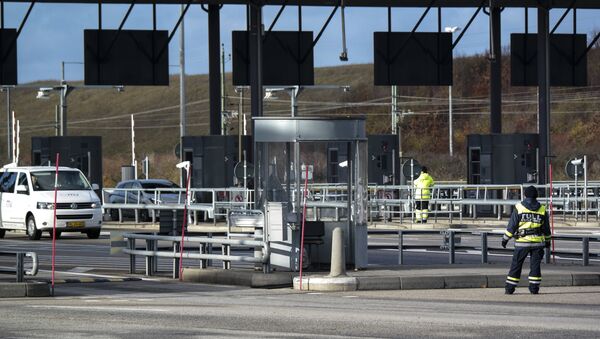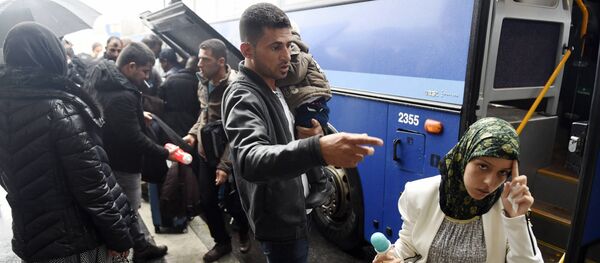Over 3.2 million checks were carried out at Sweden's borders between July and August 2016 alone, which is eight times more than in Germany (which carried out less than 400,000 during the same period). Norway carried out slightly over 436,000 checks, as opposed to around 870,000 in Denmark.
Despite Sweden's seeming vigilance, which manifests itself in the record number of checks, it scored the least in the number of illegal migrants picked up by border controls. Swedish border guards only manage to capture around 300 migrants per month, which is considerably less than in Denmark or Germany.
Patrik Engström, the head of Sweden's national border police, claimed it was difficult to compare the countries' results due to the various nature of borders, stressing a much higher intensity of traffic incoming from Denmark.
The low figure, however, suggests that migrants are choosing other routes than the heavily guarded Øresund bridge to make inroads into Sweden.
"Of course, there are other routes, such as from Germany or from Poland. We also do see an increased number of people coming in through Finland," Patrik Engström told Swedish Radio, suggesting that the massive border controls will continue despite the modest result.
The border controls have been since extended several times, vexing Nordics on both sides of the Swedish-Danish border, with many companies sustaining heavy losses and many experts claiming them to be detrimental to the booming economy of the Øresund Region. The Øresund Region is a transnational metropolitan area, centered around the Øresund strait and the two cities on either side, Copenhagen and Malmö. The region has a population of almost four million and is one of Scandinavia's most densely populated and economically developed.
In 2015, Sweden's then-Deputy Prime Minister Åsa Romson of the Green Party notoriously broke down into tears as she announced the government's U-turn over the refugee crisis. Today, the Greens, for whom immigration seems to be a matter of the heart together with environmental issues, threaten to pull out of the ruling "red-green" coalition.
"I believe the Social Democrats' rhetoric to be rather unpleasant. If they are sticking to their line, I have it very hard to imagine that we can remain in a government with them," Sara Richert, Green Party councilor in the city of Örebro told the Swedish economic daily Dagens Industri.






